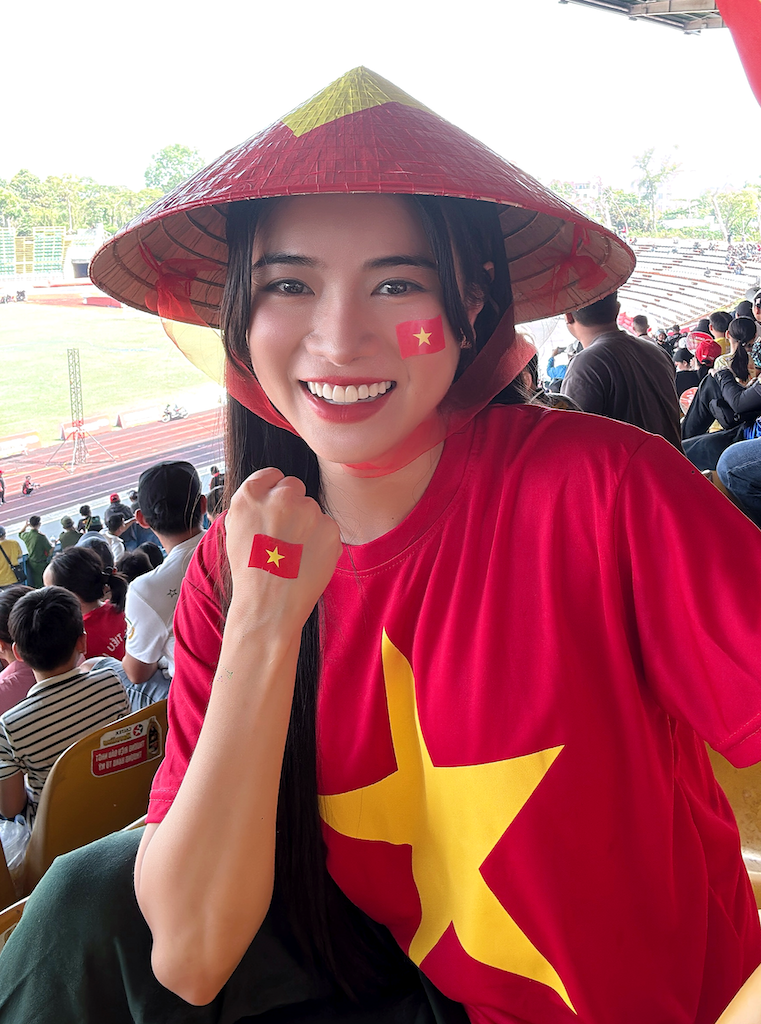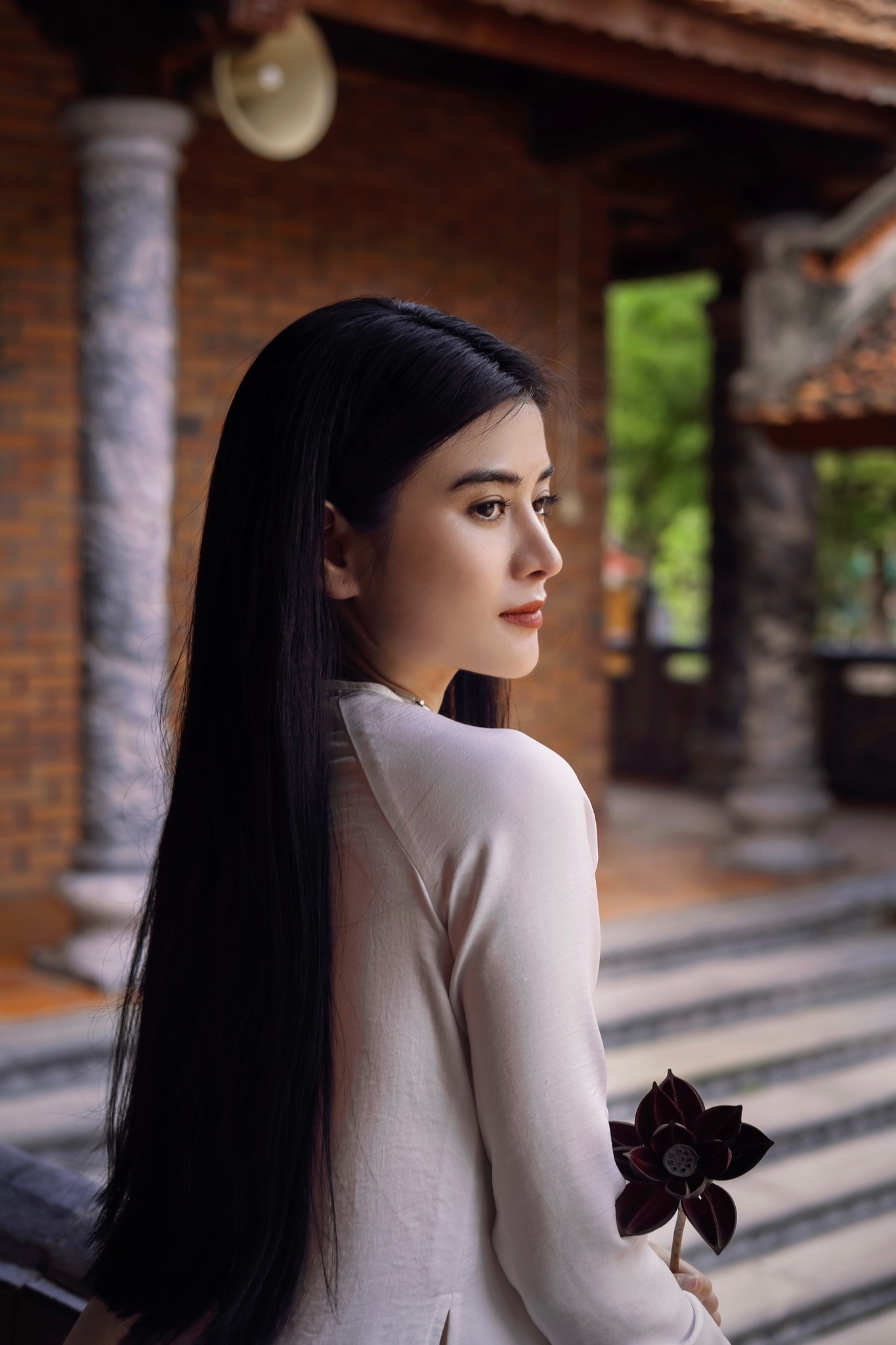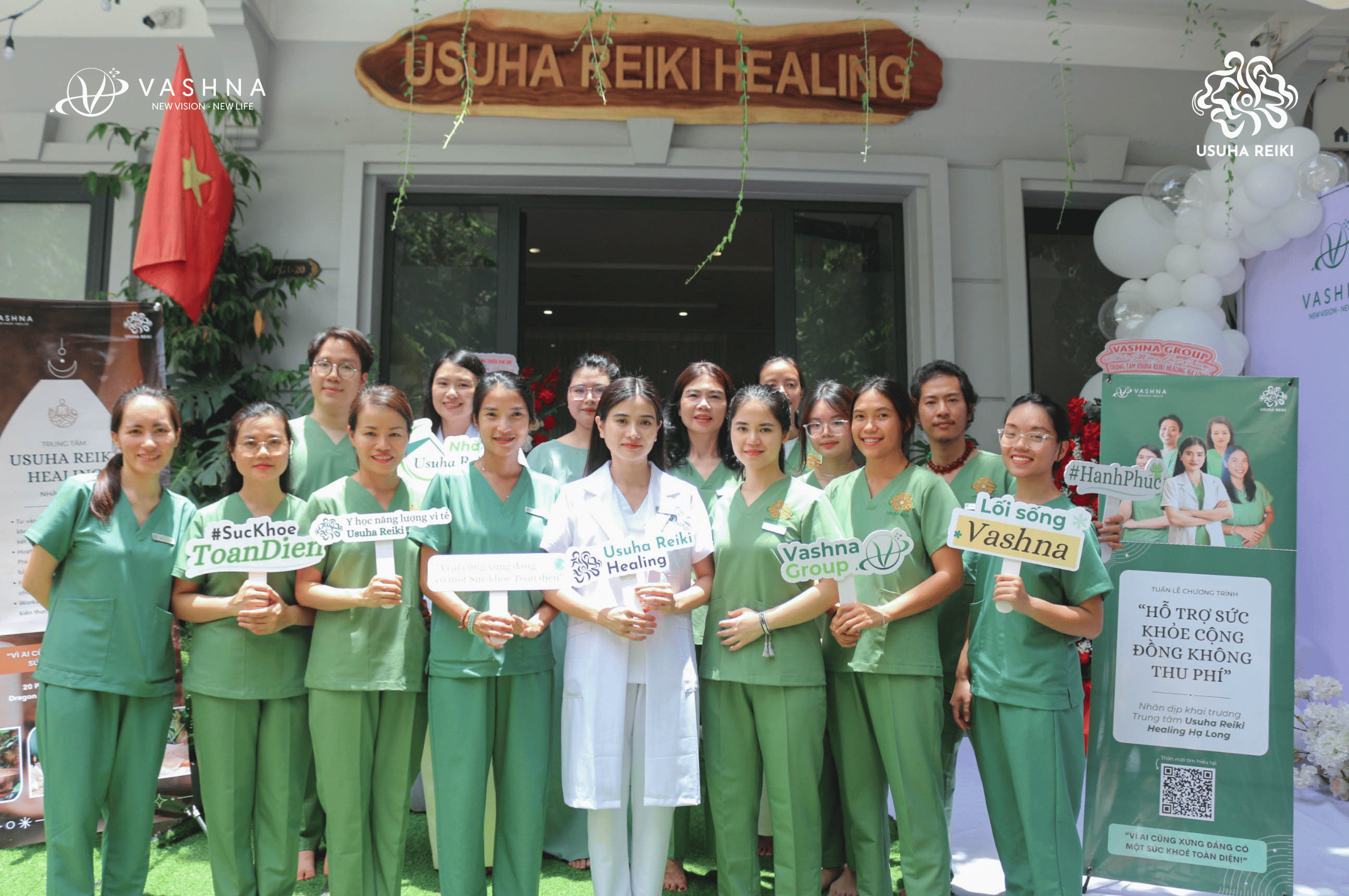Sống Tỉnh Thức
VIETNAM WITHIN ME, A SILENT GRATITUDE.
These past few days, like any other, I woke up early to begin my morning meditation. But in that stillness, it wasn't just the familiar rhythm of breath but a growing anxiety creeping into my heart. It started with the initial news about a low-pressure area over the Philippine Sea, its potential to strengthen into Tropical Storm Auring, and the warning of its risk of entering the South China Sea, widely reported by the media. As someone who has previously provided forecasts, I understood clearly what this meant. That feeling has been lingering within me for days, a silent premonition that couldn't be dismissed. More than anyone, I wished my forecasts would not come true. And I continue to pray with every passing day, with every breath, that if the storm arrives, it will pass peacefully.
But today felt different. I still woke up early, still prepared for my meditation. And in the silence, I suddenly heard two familiar voices echoing back. One deep and resonant with the Northern accent, one light as the Southern countryside breeze. They were the voices of my father and mother, two people who came from two historical frontlines, who met under the roof of peace to give birth to me, a crystallization of historical paths that were no longer divided. As if to remind me that today is a truly special day. I sat there quietly, and as the fresh air of the earth and sky filled my lungs, I knew that I was living in truly sacred moments of history. The sacredness didn't come from books, but from the very air itself. An atmosphere woven from the heroic spirit of our ancestors, from hearts that once blazed with ideals, from drops of fresh red blood that soaked into every inch of our homeland's soil, from the indomitable spirit of a heroic nation. The sacredness of independence, freedom, and fraternity.
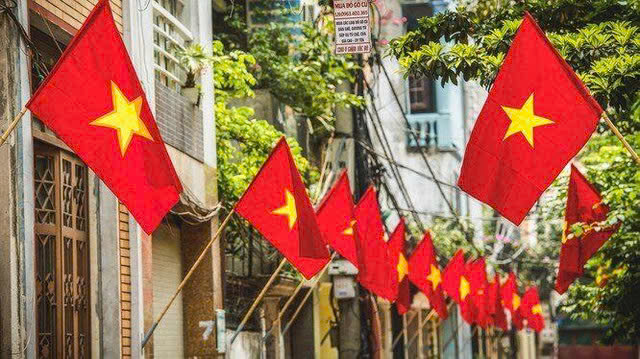
Stepping out onto the street, the brilliant red on every flag, the radiant smiles of the people, the old songs echoing in the April air, all made me pause. I chose to temporarily set aside my worries, not because they weren't important, but because I understood some moments need to be kept intact. And today, as the entire nation turns towards the half-century milestone of unification, I want to allow myself to walk slower, more quietly, to merge into that flow with the joy of life. In this sacred and poignant atmosphere, countless memories, old stories, recollections from trips across the S-shaped stretch of land flooded back. They intertwined within me into a stream of emotions both gentle and intense, like a reminder. Like a promise. To myself. To my generation.
In the past few days, as the entire country joyfully prepared to commemorate the 50th anniversary of national unification, I remained in my own quiet room. I had withdrawn from the online world for a while, temporarily closing all social media windows to dedicate complete space to my book project and long meditation sessions. I hadn't intended to break the silence I had chosen, but today, I suddenly felt an urge to share a few things from my heart with you all. So that we, no matter what worries we hold, can pause together in this moment and be grateful that we are still alive, still loved, and still a part of Vietnam's journey.
1. Two Regions' Currents Converge Within Me
Born in Can Tho, yet carrying within me two intertwined North-South streams. My parents' marriage is a vivid testament that unification was not just closing a divided map, but also healing the invisible borders in our hearts with love and compassion. I, the child of the former two sides of the demarcation line, grew up as a resonance of two accents, two traditions, yet sharing a common heartbeat named Vietnam.
My childhood hummed with both the folk singing of Ninh Kieu wharf and the traditional songs of Kinh Bac land, growing up amidst my grandparents' stories of the rear supporting the frontline. Every April 30th, those stories come alive again, and I always feel a strange emotion welling up within me – a nostalgia for the years I never lived, yet a deep gratitude for the days I am living. The more I grow, the more profoundly I understand that peace, independence, and unification are truly priceless gifts, wrapped in the blood, tears, and aspirations of our ancestors. That aspiration for independence and freedom did not end with the sound of the Independence Palace gate falling; rather, it continues to nurture new long marches. Long marches to lift the country out of poverty, long marches to rise onto the global map of knowledge, long marches to protect our living environment amidst the climate storm. The path we walk today does not start from zero, but continues the magnificent footsteps of those who came before us.
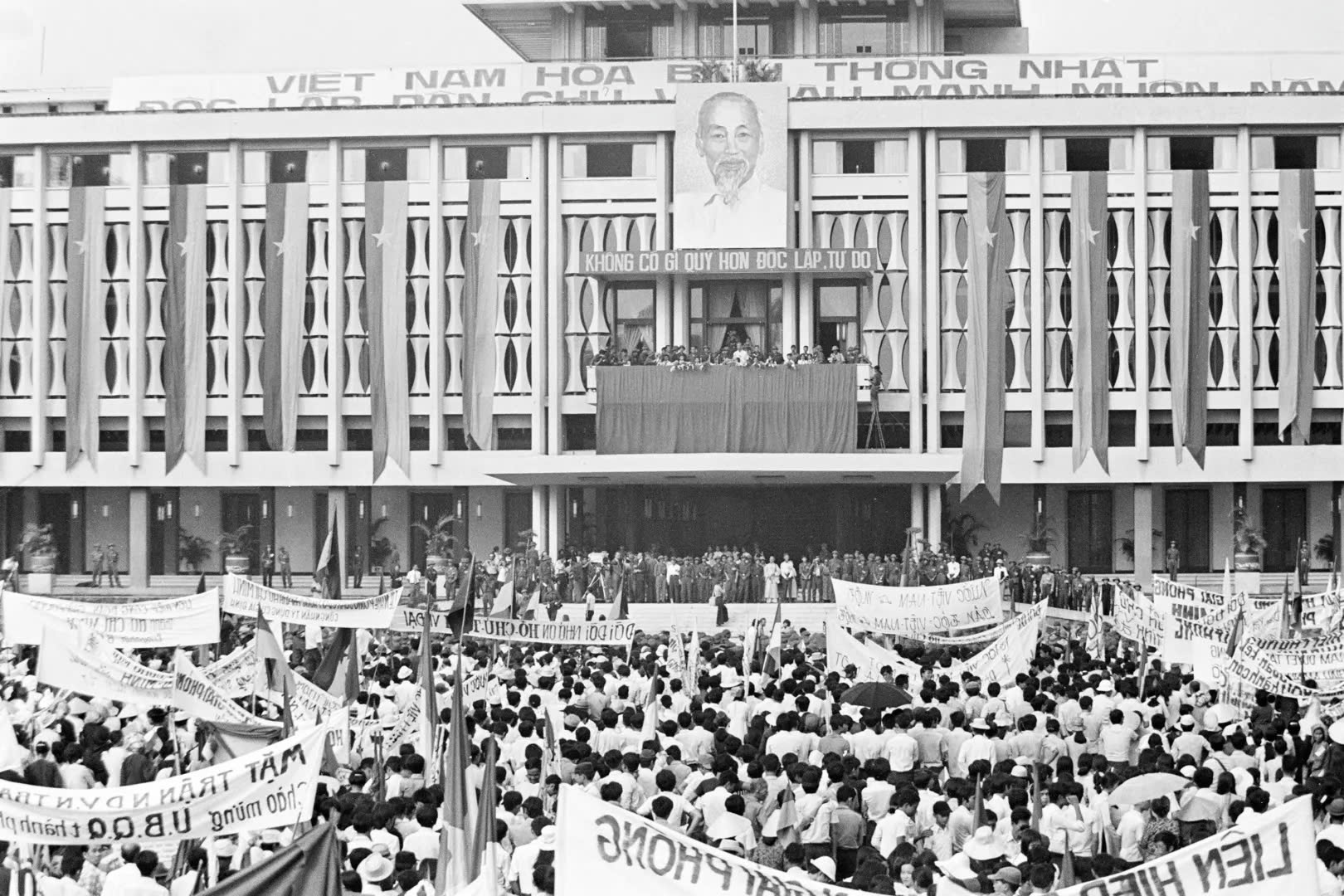
50 years since the Liberation of the South, the Unification of the Nation. That is a period long enough for a baby born precisely at the moment the flag fluttered over the Independence Palace to now have become a grandfather or grandmother with greying hair. It is also a period long enough for memories once thought deeply etched to begin gradually fading in the hurried rhythm of the globalization era. Yet, I know that the sacred value of peace and independence has never lost its vitality in the blood of every Vietnamese person.
My generation and I are children who inherited the glory of the nation. For us, war is merely stories told, precious documentary footage, towering monuments, and vast cemeteries of fallen soldiers. We have never experienced the battlefield, never witnessed artillery shells shaking the earth and sky, never fully understood the heart-wrenching feeling before ultimate pain and loss, never experienced the moments of nervous anticipation waiting for news of victory. We grew up in the early 90s, a time when the country had entered the cycle of renewal (Đổi mới), when there were no longer scenes of queuing for rationed rice with coupons or the flickering candlelight of literacy classes in the night. My childhood was intertwined with the windy Ninh Kieu wharf, with afternoons flying kites by the mangrove rows, with the distant sound of 'đuôi tôm' boat engines from heavily laden orchards. We were raised on streets where bomb craters had been filled, attended school under spacious roofs, and every night could look up at a peaceful sky free of artillery trails. But precisely the peace we are enjoying further deepens the gratitude and love for the Fatherland within me. Our patriotism is not only nurtured by stories told, by the teachings of our teachers, by the examples of bravery and resilience, by precious documentary footage, but also by a profound understanding of what the nation has overcome. I want to look back at that 50-year journey, not just to understand history, but to feel the breath, the heartbeat, the resilience, and the greatness of our people.
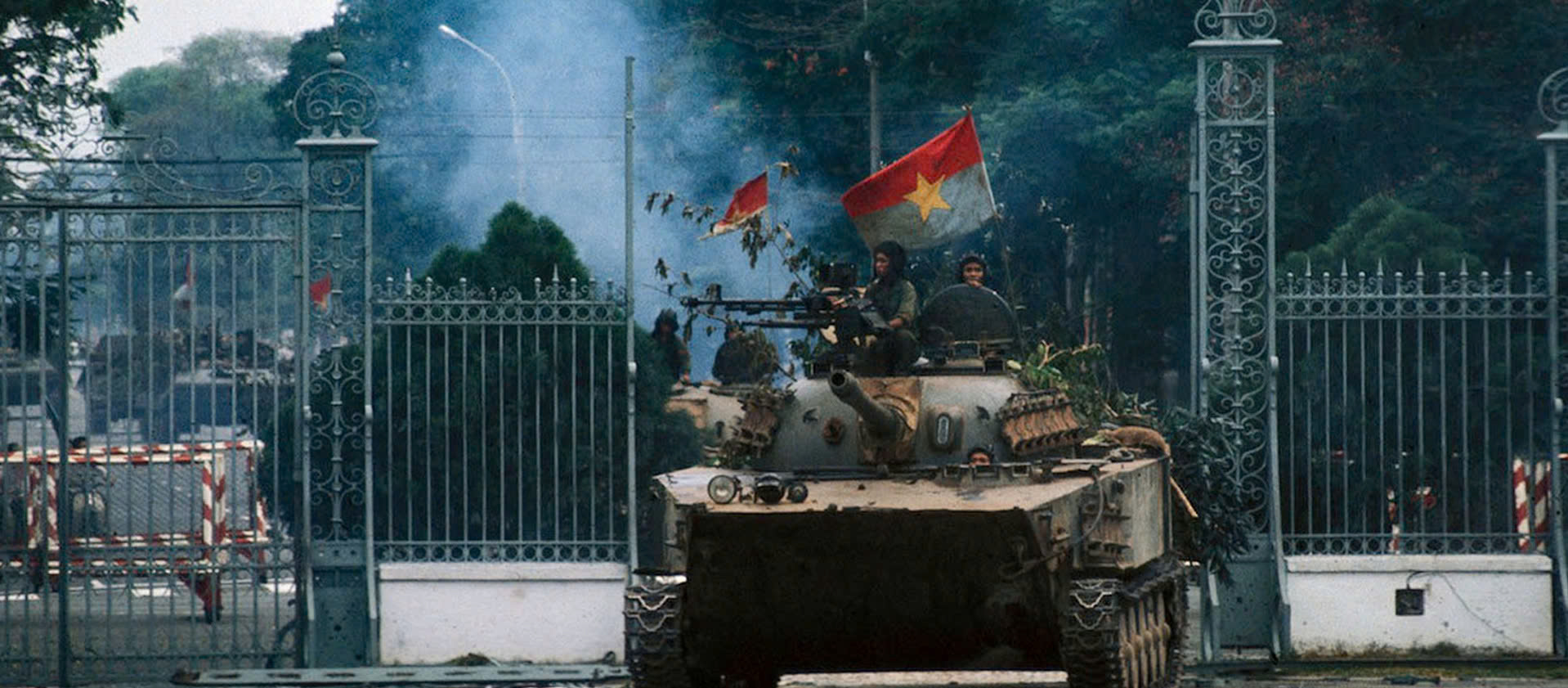
April 30, 1975 – that was not merely the day the final tanks crashed through the gate of the Independence Palace. It was the culmination of a long, arduous journey, drenched in the sweat, tears, and blood of not only the soldiers on the front lines but also of millions upon millions in the vast rear. When someone speaks of war, the image of a soldier charging with a rifle is the first to appear. Indeed, the courage and sacrifice of the heroic martyrs on the battlefield were immense. But for the soldiers to fight bravely with peace of mind, for the front lines to have sufficient strength, the rear, the heart of the resistance – also had to strain itself to bear silent yet no less great responsibilities.
I have thought about the mothers. The mothers who saw their sons off to the front, suppressing their tears, a forced smile on their lips serving as invaluable encouragement. Then, day and night, they longed for news of their children; every letter was a hope, every returning swallow brought a pang in the heart. There were mothers who sent several children off, only to quietly receive death notification papers. That pain, no sound of gunfire could compare. They did not directly hold rifles, but their hearts were a fierce battlefield.
I think about the wives. Their youth was contained within letters sent to the front lines, within long sleepless nights waiting for their husbands. They alone shouldered household chores, raised their children, toiled hard to send every kilogram of rice, every piece of clothing to the battlefield. Their longing and faithfulness were a source of spiritual strength that fueled those on the front.
And there were countless other silent people. Mothers, older sisters, younger sisters, tirelessly working in the fields, with "planting hand, rifle hand," "hammer hand, sickle hand," producing to feed the troops. Returning home in the evening, they would light oil lamps to hastily sew the national flag. Workers and engineers dedicated their efforts in factories and enterprises, despite scarce and difficult conditions, and still produced weapons, ammunition, and goods for the battlefield. The mechanics who stayed up all night to keep the “Hau River Girl” – a transport ship carrying supplies – from emitting smoke mid-journey because a single spark could reveal its position. The teachers who held onto their schools and classes, imparting knowledge to the young generation, lighting the flame of hope for the future. The medics and doctors who worked tirelessly in field clinics and hospitals, fighting for the lives of wounded and sick soldiers. They, the people in the rear, were not as widely celebrated as the soldiers, but their silent sacrifices contributed greatly to the victory. Each grain of rice sent to the front was the sweat, the toil of the farmer. Each bullet fired was the effort of the worker. Each handwritten letter was the love, the longing of those at home. It was precisely this unity and collective effort, this spirit of "all for the front lines, all for victory," that created an extraordinary combined strength, leading to the Great Spring Victory of 1975.
April 30th is the day of liberation, the day of unification. But it also carries pain. The pain of those who lost loved ones forever. The pain of physical and spiritual wounds still lingers. Although the country was unified geographically, the two regions still had many differences, infrastructure was devastated, the economy was crippled, and people's lives were incredibly difficult. The post-war period was a battle without gunfire, demanding no less perseverance, creativity, and sacrifice. My mother also often told me about her youth. Can Tho city back then didn't have a cable-stayed bridge over the river, electricity flickered, and the old market had sparse stalls. Scenes of queuing for food, coupons, and general deprivation. Those stories had no bombs or bullets, but still bore the burning sacrifice, the silent sacrifice of peace. Because those who remained had to fight against poverty and backwardness to keep the promise to "live worthy of those who have fallen." The hoe, the sheet metal, and the bag of cement replaced the gun. I read books and watched films about the early years after liberation. And in those difficulties, I saw the extraordinary willpower of the Vietnamese people. They didn't collapse, didn't complain, but joined hands to rebuild life from the ashes. From the smallest tasks like cleaning houses, repairing roads, and restoring production. That was the strength of life, of faith in a brighter future.
2. Vietnamese War Through the Lens of Peace and Silent Sacrifices
Looking back at history, in 1975, Vietnam played the role of a “lonely victor” in the context of the Cold War. The Democratic Republic of Vietnam at that time was not internationally recognized, was subjected to a comprehensive embargo by the United States, and its transactions with the West were paralyzed. In the region, we were regarded warily by our neighbours. After sending troops into Cambodia in 1978, Vietnam became even more isolated and diplomatically sanctioned. Dependent on aid from the Soviet Union, relations with China fractured and then erupted into border conflicts for over a decade. The unification of the two regions with two different socio-economic systems also presented an incredibly complex problem for the Party and the State. For a country almost completely exhausted after many decades of war, poverty, and backwardness, perhaps few people during that period could have imagined that this fledgling state would be able to survive such challenges.
But the past 50 years are a miraculous answer. In the history of the modern world, Vietnam is a special case regarding its ability to recover and rise strongly after a prolonged, devastating war. While having to overcome the consequences of war and build the foundation for a new social system, it also faced challenges to security and sovereignty. In that context, the fact that Vietnam, within just a few decades, achieved tremendous accomplishments in economic development, poverty reduction, international integration, and improving people's lives is truly impressive.
Although there are still many difficulties and challenges ahead, what Vietnam has achieved since the war is truly an inspiring story of indomitable will, the ability to overcome hardship, and the aspiration of a nation to rise. While each country has its own path to recovery and development after war, the case of Vietnam, with its unique historical characteristics, starting point, and development method, is a clear testament to the extraordinary capability of people when guided by sound leadership and a spirit of unity. And, I realize that this achievement is the crystallization of a consistent flow of the ideals of independence - prosperity - happiness, of an attitude of humility - vigilance - eagerness to learn, and above all, the xuyên suốt ("people as the root") core value. Generations of leaders changed, language was refreshed, geopolitical circumstances reversed, but that underlying spiritual current was never interrupted.
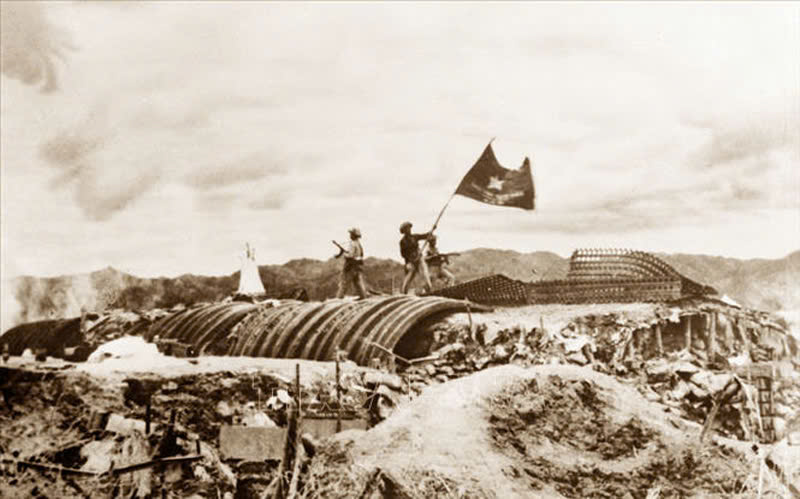
Through all the historical ups and downs, the Vietnamese people have always placed their trust in the leadership of the Party and the State. That trust is built on the foundation of the tireless sacrifice and dedication of the Party for national independence and the people's happiness. The Party went through the most arduous years of war alongside the nation, and together with the nation achieved miracles. And when the country faced the risk of falling behind, when the old economic model was no longer suitable, the Party bravely looked directly at the truth, listened to the voice of the people, to initiated the Đổi mới (Renewal) process in 1986. The Đổi mới process was not a ready-made formula, but a journey of exploration, experimentation, and even mistakes. But the important thing was that the Party placed the people's interests first, taking the country's development as the highest goal. Thanks to Đổi mới, the potential of the Vietnamese people was unleashed, and creativity was ignited. From small initiatives in production to macro-level strategic decisions, everything created a powerful momentum driving the country forward. That trust is companionship, understanding, and sharing. The people trust in the Party's sincere aspiration to bring warmth and happiness to the people. They trust in the courage and wisdom of the collective leadership that dared to look directly at the truth, dared to change to move the country forward.
The achievements of the country over the past 50 years, especially the nearly 40 years of Đổi mới, are the clearest proof of that correct trust. From a country suffering from famine, Vietnam has become a nation ensuring food security and a leading agricultural exporter. The consistently high economic growth rate over many years has brought Vietnam into the group of middle-income countries. People's lives have been significantly improved. Children go to school, the sick receive medical care, the elderly are looked after. Infrastructure has developed strongly, transportation is convenient, and communication is modern. In 2025, Vietnam stands proudly as one of Asia's most dynamic economies, maintaining a skillful balance between major powers, contributing proactively to peace, security, climate, and global supply chains. The 50-year journey from a peripheral position to a regional center and international influence is indeed a miracle.
Looking out at the world, there are some countries referred to as economic miracles, like Germany, Japan, or South Korea, as they rose after the world wars. But their rise was often associated with large-scale foreign aid and specific historical conditions. Vietnam is different. Our war lasted longer, was more devastating, and we rose primarily by our own strength, through the Đổi mới policy driven by the nation's internal force. Vietnam's recovery and development is a story of will, of the extraordinary resilience of the Vietnamese people, of the ability to turn pain into action, to turn difficulty into motivation, under the steadfast and flexible leadership of the Party. No country in the world has experienced a similar level of destruction, severe nationwide consequences, and a comprehensive embargo, yet achieved such accomplishments in the time our country has. That development has been so rapid that the story of Vietnam in many countries' textbooks hasn't even had time to change. They still teach about a backward and poor Vietnam after the war, but the reality is completely astonishing to them.
2025 is also a special milestone for the country. It is the point of intersection between the past and the future. Because we are also undergoing a “revolution” of utmost importance. The “revolution” in the administrative system, simultaneously streamlining and reducing levels of local government, meaning a fundamental change. This is perhaps no less significant a courage than the previous Đổi mới. Everyone has a homeland, familiar places. But standing at the inevitable threshold of history, of a new era, if we do not seize the opportunity to move forward, we risk falling behind, endangering our national destiny. Once again, we must set aside personal interests to turn towards the nation, towards all the people, to move forward together, to build our common homeland together, our homeland Vietnam. I believe that the xuyên suốt ("people as the root") spirit will guide the dedicated leaders to lead us to the path of development and prosperity. So that 50 years from now, we can once again reflect on today, the day a new undertaking began.
3. Understanding Peace Through the Hardships Without Gunfire
Not just that, what makes me even prouder is the way Vietnam faces its past and reaches out to the world. A nation that has suffered so much pain and loss as Vietnam can put aside hatred, extending a hand of reconciliation, peace, and friendship even to former enemies. The fact that we have normalized relations with the United States, becoming a comprehensive strategic partner, is something not every nation can achieve. That is not merely political wisdom, but a noble gesture, a great soul of the Vietnamese people, as Uncle Ho taught: "Nothing is more precious than independence and freedom," and independence and freedom must be associated with peace and friendship. Vietnam's diplomatic style today is a combination of the steadfast courage to protect national and ethnic interests with flexibility, sincerity, and openness. Vietnam wishes to be a friend, a good partner, a responsible member of the international community, working together to solve global problems, contributing to common peace, stability, and development. I feel that we have set foot on the path towards the "five continents" that Uncle Ho always yearned for.
Witnessing what is happening across the country for this special commemorative event. I can only utter two words: PROUD. Half a century ago, the victory of April 30 closed a costly war in terms of human and material resources, opening a journey of healing and construction. Half a century later, Vietnam steps onto the grandstand not just to reminisce, but to declare to friends across five continents that a nation which has endured bombs and bullets has now matured into a pillar of peace in the region. The scale of this year's event far surpasses all previous commemorations: over 13,000 military personnel, police, militia, and citizens formed 56 marching and parading blocks, along with aerial displays, naval gunboats, and mass artistic performances involving tens of thousands of people. The sheer magnitude is perhaps not meant to boast military might, but to tell the story of the astonishing rebirth of a country once devastated, now rising to be among the top in Asia in terms of growth, integration, and contributions to UN peacekeeping.
This year, Vietnam expanded both the guest list and the formations. And for the first time, we invited foreign military contingents to march in a national-level review and parade. I know that not every nation is ready to open its review and parade formations to foreign militaries. Allowing foreign armed forces to carry weapons and national flags into one's country requires a very high level of security trust, and also demonstrates that the host nation's Ministry of National Defense is completely confident in its control and security capabilities towards friendly nations. This unprecedented large-scale show of force is no longer merely a display of military hardware; inviting foreign militaries to parade together is laying the foundation of trust for future joint agreements, humanitarian aid, and peacekeeping. When China, Laos, and Cambodia marched in the streets of Ho Chi Minh City, those were also the footsteps of hotlines between the general staff of different countries, a map of Southeast Asia connected by dialogue rather than suspicion.
Not only that. This year's event carries too many profound values. Firstly, within that echoing rhythm is the sound of historical gratitude. My generation of Vietnamese today has never stood in the same trenches with the Lao and Cambodian volunteer soldiers or the Chinese advisors as our ancestors did. But we are deeply aware that the sacrifice and logistics support from our neighbors contributed significantly to the freedom and independence of our homeland. Inviting the militaries of the three brotherly countries is a reminder of the tradition "When drinking water, remember the source" on a national scale. Vietnam does not forget the past, nor the hands that held ours tightly during the storm of fire. That spirit of gratitude spread along the boulevard, where people cheered when they saw the colors of neighboring flags merge with the colors of the Fatherland's flag, a message that the painful history has been transformed into a red thread of friendship.
.JPG.webp)
Source: vov.vn
Alongside gratitude is the assertion of national self-mastery. Amidst a multipolar international landscape, the parallel presence of the Chinese contingent in the parade and high-level delegations from the US, Japan, Australia... on the honor stand affirms our policy of "multilateralism and diversification." Vietnam is a friend to all nations, choosing peace over taking sides, not leaning towards any pole but prioritizing national interests and international law. The decision to invite the PLA was made only after the high-level visit between the two sides at the end of 2024, while welcoming the delegation of former US combatants reminds us of the persistent three-decade journey of reconciliation. That subtle balance speaks to Vietnam's peak level of diplomatic "chess playing." Having the courage to arrange seemingly opposing pieces on the same board, turning a historical commemoration into a forum for peace.
The advantage of Vietnamese culture also extends to the aspect of "soft military power." Photos of Lao soldiers wearing helmets adorned with the three-headed elephant emblem, Cambodian soldiers in traditional ceremonial attire, or the Chinese five-star flag flying right behind the Vietnamese national flag are flooding social media across Asia.
.JPG.webp)
The People's Liberation Army of China. Source: vov.vn
.JPG.webp)
Lao People's Army forces. Source: vov.vn
.JPG.webp)
Royal Cambodian Army . Source: vov.vn
Those images tell a story of an open, hospitable, and deeply compassionate Vietnam, simultaneously helping to promote the dynamic Ho Chi Minh City on the eve of its strategy to become a regional financial center. The tourism sector benefits as numerous reports, vlogs, and livestreams spread across TikTok, Weibo, and Instagram, embedding icons like the Central Post Office Clock Tower, Notre Dame Cathedral, and the Independence Palace into the minds of millions of young viewers in the region.
Not just limited to ceremony, the multi-national review and parade also kicked off a series of substantive agreements: signing UN peacekeeping cooperation with Cambodia, enhancing Vietnam-Laos disaster relief exercises, discussing the extension of the Vietnam-China border patrol line; while also opening the door for the export of light defense industry products, a field Vietnam is developing. The splendour of the parade became a catalyst for Memoranda of Understanding (MOUS) to quickly transform into action programs, from peacekeeping to anti-human trafficking, from cybersecurity cooperation to military academy exchanges.
Looking deeper, this year's April 30th event affirms that Vietnam dares to step into a "new height" of the era. Over the past 50 years, the world has seen parades of scale and grandeur. But most were linked to showcasing military might; Vietnam chose a different path. Turning weapons into the language of reconciliation, turning the sound of the marching drums into a symphony of regional harmony, turning war memories into motivation for common development. From being a "stage of artillery and missiles" in the eyes of international media, Vietnam has redefined the concept of a parade: it is not a review to see who is stronger, but an invitation to be strong together in trust. Looking out at the current world. How many places are experiencing conflict and clashes? How many places suffer from hunger and a lack of food? How many places are ravaged by natural disasters? How many places do people live, forgetting compassion? I feel even more deeply the great values that our country is bringing to every Vietnamese person.
4. The Nation Unified: The Song of Compassion and the Aspiration for Benevolence
I grew up in the years when the country entered the era of integration. The world opened up before my generation through every internet window, through classrooms filled with the sounds of English and Japanese, and with new concepts like AI, blockchain, and ESG. We studied, bringing knowledge from distant lands back home with the desire to create something truly unique for Vietnam. People say that young people nowadays are too dreamy, getting lost in the “metaverse,” drifting away from their ethnic roots. But I don't think so. Each metro ride weaving beneath the city, each pair of sneakers printed with the red flag and yellow star during SEA Games days, each song and dance that goes viral – these are the ways we quietly continue to tell the story of Vietnam in our own way. We connect with the world, but we have never left our motherland.
Loving the country in peacetime, for me, means holding a compassionate heart so that differences do not become hatred. It means maintaining an unceasing spirit of creativity so that Vietnam is not left behind in the global knowledge race. It means keeping our hands clean, the environment we live in healthy, so that nature does not have to be angry with future generations. And it also means keeping the promise to our ancestors that today's independence will blossom into freedom and benevolence for tomorrow.
“Vietnam is one, the Vietnamese nation is one. Rivers may run dry, mountains may erode, but that truth will never change.” – President Ho Chi Minh
I have never had the opportunity to witness the handshakes between those who were once adversaries in the war. Nor do I have the right to speak on behalf of those who endured immense losses during the turbulent times. But I am a young person, born after the country was unified, who grew up in peace, and because of that, I hold a fervent belief: hatred cannot heal hatred. Only compassion can open the closed doors in people's hearts. And all Vietnamese people are one.
I have been taught lessons, enough to understand the causes of wars, from external divisive schemes to internal plots undermining unity and sowing hatred for political motives. But I believe that no matter how far one has gone, no matter where one stood in the cut of history, deep down, every Vietnamese person still carries a thread of connection to their roots. Perhaps circumstances forced many to leave, many to choose different paths. Perhaps subsequent generations were educated with falsehoods. But if they still hold love for their homeland, still yearn to see a peaceful, prosperous, and benevolent Vietnam, then they deserve to be welcomed back as children who have gone far and now find their way back to the common home.
National reconciliation is not forgetting, nor does it mean blurring memories. It is a noble choice to rise above differences together, so as not to let the past hold the future captive. As a young person, I hope my generation will be those who continue to extend a hand, not with words of contempt, not with prejudice, not with discrimination, but with the belief that love is stronger than resentment. Because in the end, we only have one Fatherland. And if the Fatherland is great enough to embrace all the pain that once divided it, then we also need to be great enough to do the same in our hearts. I hope that Vietnamese people, no matter how they may have strayed, no matter how far they have been, will one day return, not to explain or justify, but simply to live fully with the intact love for their homeland. And then, this country will welcome them with the composure of a nation that has suffered much but has never abandoned hope. I only hope that each of us, the generation living in peace, quietly does small things every day. Let's offer a smile to a stranger, because there was a time when that was a luxury amidst the gunfire. Let's do a kind deed, because kindness is the most sustainable way to preserve the nation. Let's mind our words, because words can be a bridge of peace or a stone that stirs up division. And let's learn something new, because knowledge is the strongest weapon of this generation to protect sovereignty and reach for the future.
I place my full trust in the leadership of the Party and the State, and the unceasing aspiration for the development of our nation. From the grains of rice in the fields with the wings of storks flying straight to the satellites orbiting Earth, from children's paintings to digital transformation initiatives, Vietnam's palm line is getting thicker with every mark. And I pray that every policy, every technological advance, every cultural masterpiece will be imbued with one thing: the breath of gratitude. So that every young person acting today understands that their most precious asset comes not only from material wealth, but also from the spiritual heritage that history has left behind. When we truly become a unified block of great national unity, all children of Vietnam around the world. Then, Vietnam will have no weakness, no scheme will be able to hinder the nation's path forward.
Looking to the future, there will still be challenges. But I believe in my country. I believe in the strength of unity. I believe in the wisdom and resilience of the Vietnamese people. I believe in the leadership that has navigated through so many ups and downs alongside the nation and has always acted for the benefit of the people. On this special April 30th, in the solemn and emotional atmosphere, I want to silently send my deepest gratitude to all those who made silent sacrifices. Thanks to them, we have today. And we will continue to walk on the path they opened, with hearts full of hope and love for the beautiful homeland of Vietnam. I want to say to myself and my generation: “Those who came before completed the mission of unification; the rest is ours, to preserve and to illuminate. Peace is not the final destination; peace is the starting runway for a bigger dream. And I, a child of Vietnam born after the war, pledge to continue walking with all gratitude and faith in my country.”
Vashna Thiên Kim
Tin tức liên quan
- Vashna Thiên Kim đem văn hóa Nepal và Nhật Bản vào sự kiện Thiền trà kết nối tại Hà Nội
- Đại sứ Vashna Thiên Kim chinh phục cự ly 21km tại Giải Marathon quốc tế
- Người đẹp Cần Thơ ẵm giải một chiếc Ford EcoSport hoàn toàn mới
- Omanda Sài Gòn khai trương trong không gian “thiền” ấm áp và trang trọng
- Văn hóa Nepal và Nhật Bản hoà quyện vào sự kiện thiền trà kết nối tại Hà Nội

